Digital 52 4️⃣4️⃣ - On hospitality and coworking, rebranding, growth, and following your true purpose: the story of The Social Hub.

Today’s story will mix hotel, coliving, coworking, students, business people and travelers. It will take you on a journey around Europe, to discover a brand that has been revolutionizing the hospitality and city landscape: The Social Hub.
Coworking in Hotels - Made with People - Multipurpose Spaces
You can read the story of The Social Hub on page 306 of "Around The World in 250 Coworking Spaces".
Coworking spaces were once a distinct concept in the realm of offices, offering a fresh work experience to its users. However, over the years, the flexible nature of coworking has attracted various businesses to explore the added value of incorporating coworking spaces as an additional service to their existing ventures. Among these businesses are hotels. In recent years, several hospitality brands have embraced the idea of developing and offering coworking spaces as an extra service to their patrons. But some brands have gone above and beyond. Not only have they created coworking spaces for their customers, but they have also transformed their locations into vibrant hubs that draw diverse crowds from the cities they inhabit. Curious to learn how they achieved all this? Meet The Social Hub!
➡️ A little refresher
Who’s behind the featured space?
Meet Charlie MacGregor, the Founder of The Social Hub.
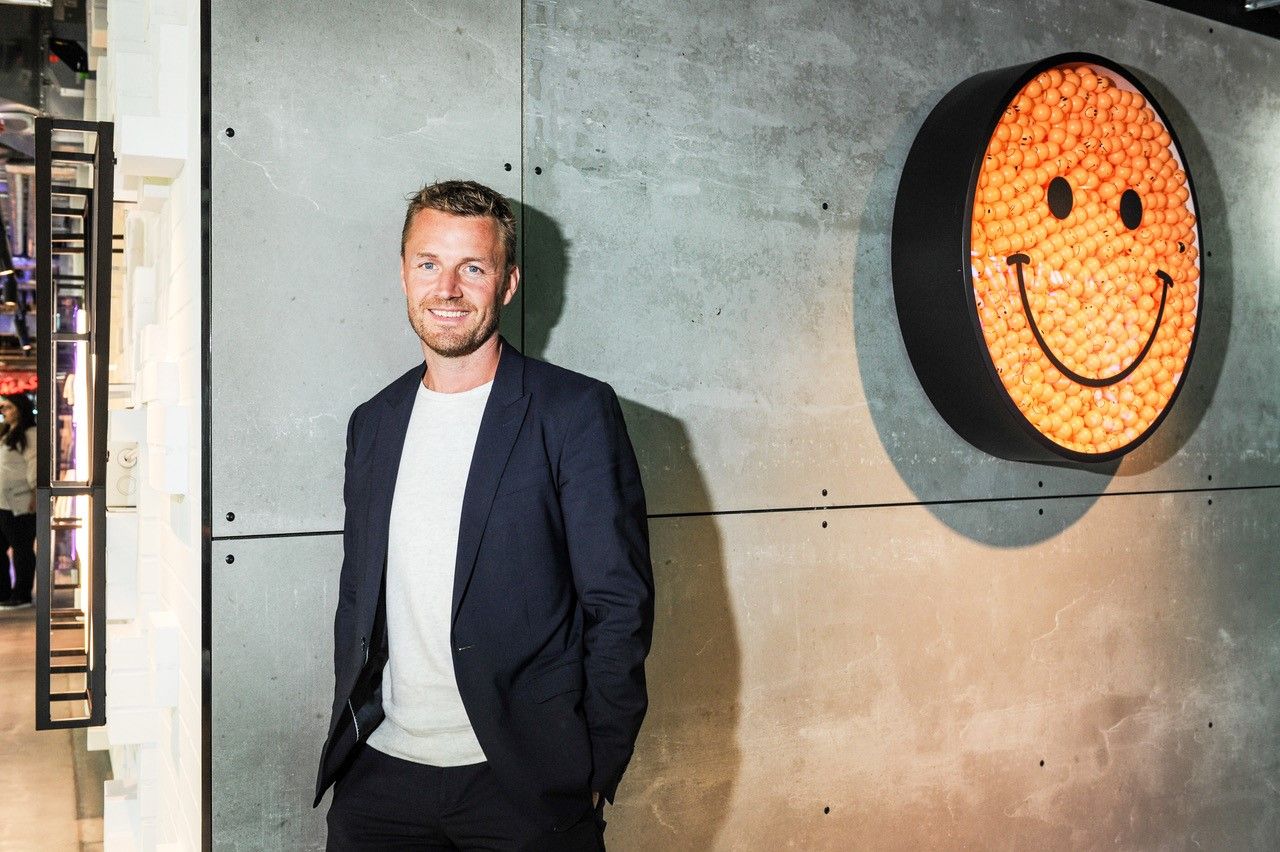
As to why Charlie decided to build TSH, he explains: “It all began 10 years ago with a simple belief: Students Deserve Better. That's why we built The Student Hotel, a place for young people to find their purpose and change the world, to shape the future. As our community grew, we grew with them – evolving into a hybrid space with hotel rooms for tourists, co-living for travelers, coworking for digital nomads and a creative playground for entrepreneurs and locals.”
➡️ Key Figures
- Opening year: 2012
- Size when they started: 1 space in The Netherlands
- Size today: Close to 20 across 15 cities in Europe.
➡️ A little tour around The Social Hub
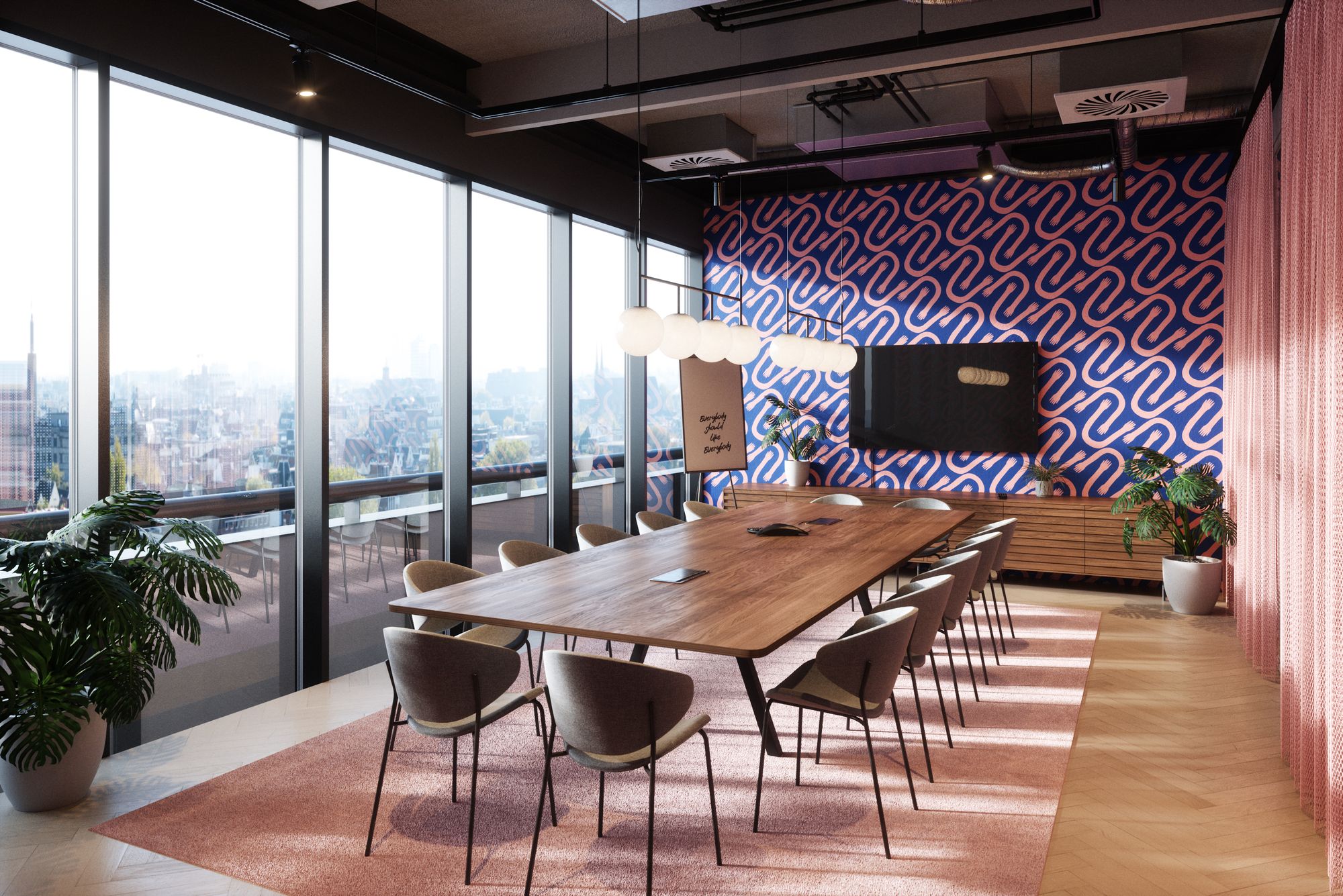
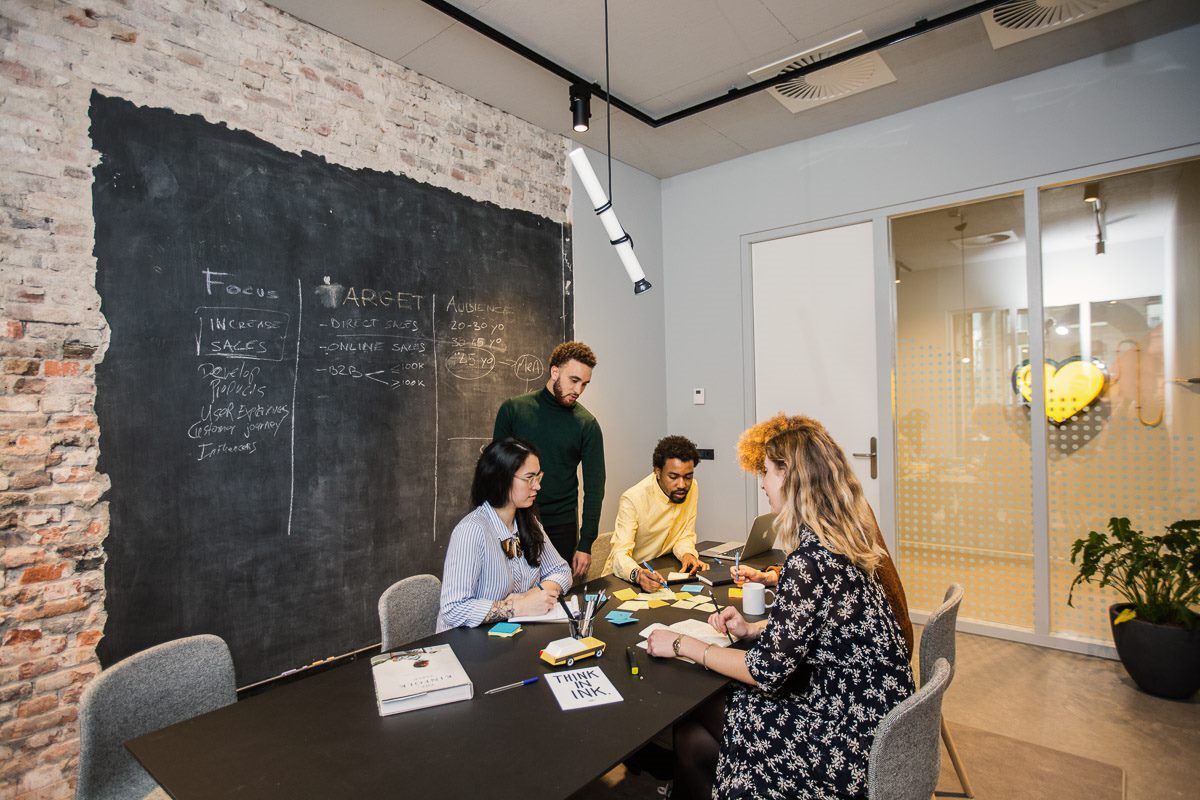

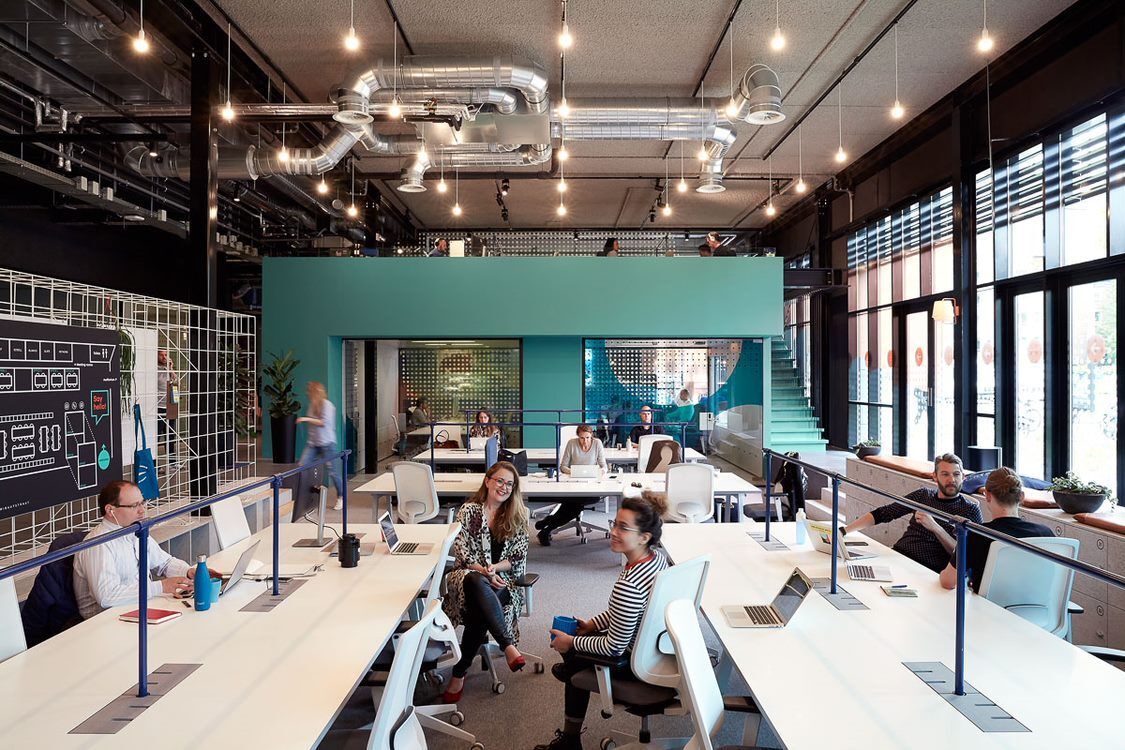
➡️ Behind-the-scenes
Things you didn't read in aw250cs.
At its core, The Social Hub is driven by a commitment to create a positive impact on the people who converge within and around their spaces. Although initially envisioned with students in mind, the brand has evolved alongside the evolving needs of its members. Over the years, it has thoughtfully introduced new services, including the dynamic offering of coworking!
Wherever they establish their presence, The Social Hub is dedicated to making a positive impact on the city they inhabit. But what does that entail? The brand actively seeks numerous ways to give back to the local community, forging strong connections with local businesses and providing support to event organizers in the area.
"Coworking became an early success and, while it constitutes a small percentage of our revenue, it plays a significant role in community activation."
Jason Steere, Managing Director - The Social Hub
➡️ The Social Hub Today
If you own a copy of “Around The World in 250 Coworking Spaces” and are searching for 'The Social Hub' among the featured spaces, you might not find them. Wondering why? Well, about a year ago, The Student Hotel underwent a rebranding and transformed into The Social Hub, while still retaining their initials, TSH. But why did TSH decide to undergo this rebranding, and what has it brought to them? Beyond the name change, what other exciting developments have taken place at TSH since the book was published? We had the opportunity to discuss all these questions and more with Jason Steere, the Managing Director of The Social Hub, during a recent follow-up interview.
💫 Rebranding and growing
Growing often entails reevaluating all the aspects of your brand, including its name. But what happens when you realize that you have outgrown your original name? Find out from the experience of TSH in the following story.
In the past few years, The Social Hub has experienced rapid growth, expanding into new markets. Curious to know what valuable insights the team has gained from entering new cities and selecting the perfect locations? The answers await you in the follow-up interview below.
💬 I’d like to start by asking you: what’s new at The Social Hub since September 2021?
There have been a lot of changes. We'll discuss the specifics in later questions, but for me, the major change is that at The Social Hub, we have rediscovered our original purpose. When we started The Student Hotel (ndlr. their former name), our main goal was to create a hotel specifically for students because we believed they deserved better.
Over the years, we evolved and expanded, adding coworking spaces and restaurants, and entering new cities. During this time, until September 2021, we became more focused on real estate, just busy with opening properties. However, from September 2021 onwards, and especially after rebranding, we took the time to reflect and reconnect with our true purpose.
Our mission is no longer solely about students; it encompasses our entire community, which we believe deserves better. With The Social Hub, we want to put 'social' at the center of everything we do. Our new purpose is to believe that together, we can create a better society. This shift in focus is the major change we've experienced over time.
Yes, we will continue to grow hotels, but now it's because we believe that when we enter a new city, we can actually contribute to improving the community and society around us.
💬 You transitioned from The Student Hotel to The Social Hub, could you explain why you decided to change your name?
It's funny because there's a little anecdote from when I first started almost seven years ago. I asked Charlie, 'Hey, would you ever consider changing the name?' And he told me, 'You're fired.' For him, the brand had only been around a few years when I started—maybe three or four years—but it was very much who we were. We spent a lot of time explaining it, of course, but it was something that we felt was quite distinctive.
I think what's changed is our community; even the students have grown up. They've matured, we'd like to say. We talked to a lot of our students, and they don't even see themselves as students anymore; they consider themselves at an earlier stage in their careers. So for them, they've evolved in how they see themselves, and we have matured as a brand.
Now, we actually reach a much broader audience. So, the main transition for the name was really because the market evolved, our community evolved, and society evolved. We kind of evolved with it, and we needed to invest a lot of time explaining that The Student Hotel was more than just a hotel for students.
We actually outgrew our original name, and we realized that our community had also outgrown its relationship with The Student Hotel. That was the easy part or the most significant insight. The name itself posed a challenge because we were transitioning from The Student Hotel, which is a very descriptive name. So, what should we come up with?
Let me share a funny story about it. We had launched the rebranding project, and I remember one of the first meetings with Charlie, where I was going to present some new name ideas. Just before the meeting or at the beginning, he said, 'I was thinking the other night, wouldn't it be cool if our new name had the same acronym as TSH as the...?' And at that moment, I crunched up the paper, threw it away, and started over. Of course, we had thought about it, but not all names had that possibility.
However, it was a brilliant suggestion because the core of our product wasn't changing; we were just maturing. So, keeping TSH as a connector made sense. People call us TSH, we use it in our branding, and even in our corporate structure. It made practical sense too since we wouldn't have to change all of our incorporated paperwork and other things. So, it was a good challenge to come up with a new name that also incorporated TSH.
💬 What has the rebranding helped you achieve so far?
As I mentioned earlier, going back to our roots helped us understand our added value and why we're doing this. We are a prosperity-driven business, not a purpose-led NGO, but we also don't adhere purely to capitalist ideals. We believe in investing the money we make back into our community. That's one major change.
Another significant shift is our ability to broaden our audience. Let's be honest, even when we explained what we were about as The Student Hotel, the name acted as a blocker for many people. They thought, 'I'm not a student, why would I want to stay there? I need a working place, not a place with a bunch of students. I want a nice restaurant, not The Student Hotel.' The new name has eliminated that blocker. People are now curious about The Social Hub and what it offers. We've retained 'The Student Hotel' in the name to emphasize that we still focus on social connections and creating a community with lifelong friends and connections. Additionally, we wanted to bring back the aspect of positive social impact into the heart of what we do.
Moreover, we are more than just a hotel now, so 'hotel' wasn't an accurate descriptor anymore. 'Hub' better reflects our status as a destination and center point, where various people, including locals, students, businesses, and tourists, come together. This change has significantly impacted how we are perceived and how we communicate ourselves.
For our existing customers, the name change made sense because we offer much more than just being a student hotel. For those who didn't know us, research has shown that there are higher expectations when they arrive at The Social Hub. They expect more than just a coworking space; they anticipate a good restaurant, more amenities, and various experiences. This is positive because we are already meeting expectations with the name, and our core experience hasn't changed significantly.
💬 The Social Hub has grown very fast all across Europe, how do you choose the city you want to expand to?
That's a really good question because, in our ideal world, we want to be a destination for international students, tourists, and business travelers. We also aim to have a vibrant coworking and entrepreneurial startup community that seeks cool spaces. That's our dream profile for cities where we operate. However, the reality is that we can't be everywhere since we are quite big. We need a city that can accommodate us, and on average, we require around 400 rooms. In larger cities, we might go up to 800 rooms, which can be a challenge in finding suitable locations.
So, we have certain criteria to determine if our concept can fit in a particular city. We consider the scale of our concept and whether it fits the city's size. For example, we love Milan and are still looking for a location there, but it's hard to find something big enough and with a great student population. If we have a 400-room hotel in Milan, we'll face tough competition from many other hotels in the city. The same applies to Barcelona, where there's a plethora of hotels.
Sometimes, going to major cities with 400 rooms can be challenging due to the intense competition in the hotel market, especially during the summertime. So, it's quite an interesting mix, but thanks to our hybrid model, we can be somewhat flexible. For instance, if we find a bigger student town with fewer tourists, we might increase the number of student rooms. In cities like Delft and Groningen, which are great student towns, we might emphasize business tourism.
The biggest challenge is usually finding a property with around 350 to 450 rooms. That becomes a critical criterion along with the mix of services we can offer in a particular location.
💬 You have a very interesting claim on your website, you say “where society comes together”. Can you expand on that? What does it mean? How do you connect those different communities that gravitate around TSH together?
That is one of the reasons why I joined the company—when I walked into the hotel lobby, I was amazed by the diversity and mix of people. It's not your typical hotel, student housing, or coworking space because there's such a unique blend. I always challenge my team when we visit different locations, asking them to spot students, coworkers, tourists, and locals in the lobby, and it's really hard because we have it all. That's why we chose the name 'The Social Hub,' as it represents this melting pot where society comes together.
Under one roof, we have an average of 60 to 80 different nationalities staying, sleeping, drinking, playing ping pong, working, and even connecting with each other. It's a mini-life experience happening within our space, and that's the power and uniqueness of TSH. How do we achieve this?
A significant part is the programming and curation of different events and partnerships in our community. From day one, we invested in bringing local partners and events, ensuring interactions between our various communities—students, coworkers, tourists, and locals. This adds tremendous value and attracts people with diverse needs.
The experiences and products we offer also contribute to the mix. Initially, some doubted the idea of having students and tourists together, but we firmly believed in respecting everyone's space and creating a special experience. When we added coworking in 2015-16, it was considered unique, and many wondered if people would want to work in a hotel. However, we saw the synergy between students, entrepreneurs, businesses, and startups as an opportunity for them to learn from one another. Today, we witness students becoming interns, working with coworkers on various projects, and vice versa, creating a truly special atmosphere.
People seeking these kinds of enriching experiences naturally gravitate toward us, making TSH a vibrant and inclusive community
💬 Coworking is part of your concept but not the main element of it. Why was it important to you guys to have coworking as part of TSH? How has your way of offering coworking changed over the years?
The ironic thing is that in the beginning, it was a bit of an accident. In Amsterdam City, we had some extra space that we were renting to a company called the Refugee Company, which supported migrants and refugees. When they moved to another location, we had this spare space and thought, 'What if we added our version of Coworking? Would it be interesting?' So we gave it a try, and it turned out to be a big success.
At that time, we already had eight to ten hotels open, making it challenging to retrofit the existing hotels for coworking spaces. However, we saw the value in the concept, as we already had people staying and working together in our hotels. So, offering a more dedicated area for them to work, with quieter spaces and additional amenities, felt like a natural extension.
Coworking became an early success and, while it constitutes a small percentage of our revenue, it plays a significant role in community activation.
Our coworkers are present from early morning till evening, and they use various facilities like the gym, restaurants, meeting rooms, etc. This constant activity creates a vibrant atmosphere that people love.
Over time, we've realized the value proposition of having coworking spaces within a hotel environment. Coworkers appreciate having access to hotel amenities, like the gym, restaurants, laundry facilities, and bike parking, as part of their membership. This understanding has led to the growth of our coworking spaces as a strategic part of our business planning.
When we explore new locations, we consider how many student and hotel rooms we can have, along with the coworking space, making it an equally important decision. For instance, in our newest location in Barcelona, which opened last September, we have 3,500 square meters of coworking space spread over four floors, with its own rooftop. We see coworking as a crucial aspect of our business, adding value to our community and attracting customers.
Coworking has become an integral part of our identity, and we continue to focus on providing an exceptional coworking experience for our members.
➡️ Reflections on building The Social Hub
💬 If you could do one thing differently in the journey of The Social Hub what would it be?
It's a really good question. Initially, I thought my answer would be that we should have rebranded sooner. However, upon reflection, I believe that the timing during Covid was actually beneficial. To be honest, if Covid hadn't happened, I'm not sure if we would have seriously considered the rebranding. At that time, we were growing rapidly and heavily invested in our real estate development focus. Covid forced us to pause and rethink our direction.
During the pandemic, we had the highest NPS (Net Promoter Score) scores from our students and coworkers. We stayed open for them, and they appreciated having a safe place with all the necessary protocols in place. So, in a way, the Covid situation was a blessing in disguise. It gave us the opportunity to reflect and reevaluate our purpose and values.
Looking back, the one thing I would have done differently is to stick with our purpose and community focus. During the rebranding, we made a decision to allocate a percentage of our profit toward investing in our community. This included scholarships for students, coworking spaces for NGOs and valued partners, as well as sustainable initiatives like food strategies, waste management, and sustainable building practices. I feel we needed that moment to rebrand and realign with what truly matters to us. Perhaps we could have embraced this community aspect sooner.
Now, I see how important our community focus is. It sets us apart and becomes a distinguishing characteristic for people choosing to stay with us. Our commitment to creating a better society resonates with people, and they are drawn to us because of that. It's become a significant reason why people would choose us over other competitors.
💬 What has been your biggest learning so far working for a brand like The Social Hub?
I have two sides of my brain. One is focused on branding, marketing, and communication, and the other is on design. On the branding and communication side, one of the biggest learnings I've had is not underestimating the power of having a strong tone of voice. We have a distinctive position with a touch of sassiness and a playful 'play with the wink' approach. Initially, there were debates about certain bold choices, like calling a beach boring in Florence or having quirky phrases in the swimming pool. However, sticking with our unique tone of voice made it super iconic. My biggest takeaway here is staying true to who you are as a brand and not trying to please everyone. It may alienate some, but it creates loyalists who love your distinctiveness.
On the design side, having worked in various design agencies and with different brands, I've learned that The Social Hub has its own specific design style, which may not align with my personal preferences. At my house, you won't find lots of colors or excessive elements. The key learning for me is again to be true to the brand's identity and not to lean too much towards premium, exclusivity, or minimalism just because I personally prefer it. People are looking for something inspiring, dynamic, and a little out of the ordinary, and that's what we offer at The Social Hub. So, even if there are moments when I may personally feel unsure about a design choice, I've realized that it's perfect for TSH and aligns with the brand's essence.
💬 What would be your best advice to someone thinking about opening a multi-purpose space with coworking in it?
That's another great question, and it's indeed a challenging market with numerous opportunities and complexities. There's a blending of hospitality and coworking, making it more than just office spaces. The key is to stand out without being overly complicated. My biggest advice would be to find your specific niche and target audience.
Don't try to be everything to everyone; be comfortable with your unique product, service, or experience.
For those considering opening a multi-purpose space with coworking, starting small and gradually expanding as you gain popularity might be a wise approach. However, I must offer a word of caution from our own experience. While it may seem cool to have hotel rooms, student rooms, meeting spaces, gyms, and coworking all in one place, it comes with its challenges. Managing multiple booking engines, software systems, PMS, POS systems, and operational maintenance behind the scenes can be quite complex and costly.
If you're thinking about a multi-purpose space, invest time upfront to plan and design the backbone of your operations to offer a seamless experience for your customers. Consider how different booking needs, rental contracts, and resident statuses for students can create complications. By addressing these issues early on, you can ensure a smoother and more efficient operation.
As someone with a design background who might not know much about the technical aspects, I still sympathize with my colleagues dealing with these challenges.
💬 If you could chat with coworking operators now, what would you like to ask them?
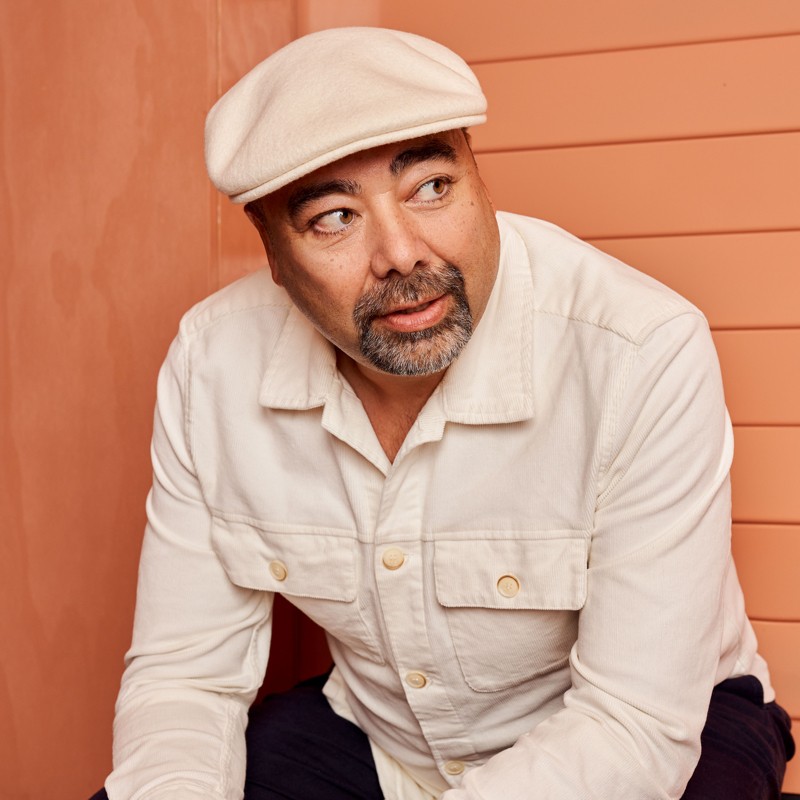
💬 And if you could chat with members of coworking spaces?
Why would you choose one location over the other? It's not only about amenities but also about understanding the unique characteristics of each location. I must admit, it's a bit of a selfish question too, as we are quite extensive in our offerings. However, it's fascinating to explore what additional experiences or amenities co-workers might be missing or seeking in our spaces.
💬 Last but not least, where would you want to bring The Social Hub next?
So, we launched the brand in October and spent the first six months getting everything in place – changing designs, signage, communications, and the website. Over the next year and a half, our focus will be on promoting the brand and making it as recognizable as The Student Hotel. We aim to achieve this recognition through what we call 'social impact areas.
One of these areas is lifelong learning. We want to be known as a place where not just students but also coworkers, locals, and guests can discover something new, learn, and get inspired. To facilitate this, we are investing in non-traditional learning programs such as master classes, workshops, and lectures. We want our guests to have the opportunity to give back to our community, creating added value for all.
The other social impact area is spaces. We want to use our spaces for good, not just the rooms. For instance, we started a scholarship program not only for students but also for people in need, like Ukrainian refugees currently staying in Berlin, Vienna, and other markets. Additionally, we'd like to offer coworking spaces to businesses that genuinely need our support and may not afford it elsewhere. We aim to utilize our meeting and event spaces in the evenings for community events like workshops and cinema nights, making us a modern-day community center for the local community.
Charlie, our founder, has always had a heartfelt desire for the social hub to be a place that promotes positive change and community involvement. Now, we've reached a point where we can genuinely apply these ideas, and it excites him to see the social hub becoming famous for its commitment to social impact.
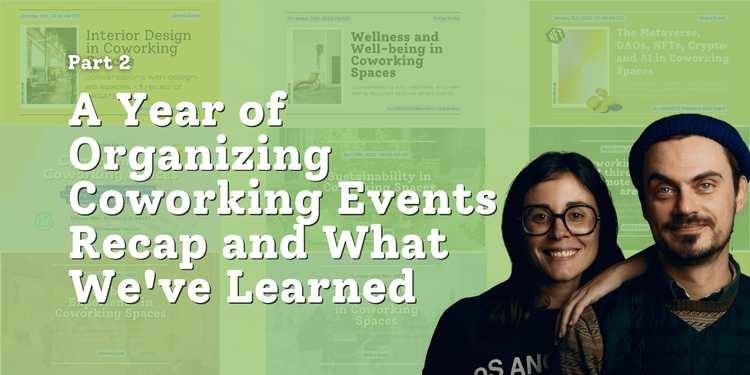




Member discussion